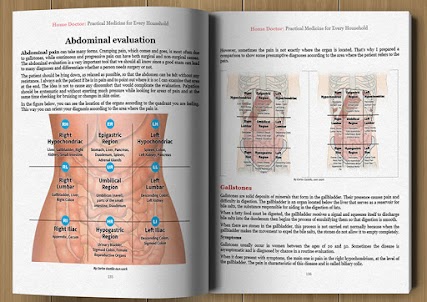Got too excited in chowing down a mouth-watering meal only to end up with an upset stomach? We’ve all had our fair share of experiences with unpleasant digestion, some more than others. Thankfully, there are a number of home remedies that can help. Read on to learn about some natural cures for gut and digestive problems backed by science.
Note: Some of the links here are affiliate links. There’s NO additional cost for you, but it does help our team to earn some coffee money to help write more health tips for you.
Flaxseed

Flaxseed, also known as linseed, is a good source of fiber and helps relieve both constipation and diarrhea. A 2018 study observed constipated patients with Type 2 diabetes who were given flaxseed cookies as a snack. Results showed a significant decrease in constipation. In another study on its dual effectiveness, flaxseed oil was found to reduce diarrhea and intestinal secretions.
It may be eaten whole, but is more beneficial when ground. However, it is best to add it to your diet gradually, starting with 1 teaspoon a day and working your way up to 2 tablespoons a day to avoid stomach upset. You can incorporate them in your cereal, yogurt, sandwich spreads, or in baked goods.
Globe Artichoke
Artichoke leaf extract helps treat indigestion as well as reduce other symptoms of irritable bowel syndrome like bloating, spasms, and gas. They are available in capsule form and can be taken as a supplement. However, effects aren’t instant and may only be seen after 2 to 8 weeks of treatment.
You can also incorporate artichokes to your diet if you are prone to digestive issues as they are rich in fiber and contain inulin, a prebiotic that helps maintain a healthy gut. They are best known for promoting liver health by stimulating bile production which helps remove harmful toxins. They can be prepared in numerous ways and cooking increases its proteins.
Peppermint

The menthol found in peppermint has properties that reduce spasms and calms intestinal muscles, making it effective in treating abdominal pain, diarrhea, and irritable bowel syndrome. It can be ingested as tea using dried leaves or as peppermint oil in the form of capsules. Creams and ointments are also available to be used topically.
Caution: Peppermint SHOULD NOT be given to infants and small children. It is also not recommended for people with gastroesophageal reflux disease (GERD) as it can relax the muscles between the stomach and esophagus and worsen the backflow of stomach acids.
Chamomile

Chamomile is one of the oldest documented herbal medicines in the world and is used to treat various ailments including gastrointestinal disorders like flatulence, indigestion, diarrhea, anorexia, motion sickness, nausea, and vomiting. It is widely known for its calming effects and this is because it has an antioxidant called apigenin which acts as a mild sedative and relaxant.
Chamomile tincture helps with diarrhea as its flavonoids and essential oils penetrate the skin, making it effective in reducing inflammation when used topically. It can also be taken as tea by steeping one heaping teaspoon of tea leaves in 6 ounces of hot water for 5 minutes.
Fennel Seed

Fennel seed is high in fiber which helps regulate bowel movement and aids in digestion by assisting the body in secreting digestive juices. It also helps with symptoms of irritable bowel syndrome (IBS) and gastroesophageal reflux disease (GERD) such as bloating, flatulence, gas, and stomach cramps by helping intestinal muscles relax and therefore reducing involuntary muscle spasms.
Fennel seeds are more concentrated than the plant itself so a little goes a long way. A teaspoon to a tablespoon is all you need for most recipes. It has a sweet, earthy flavor similar to licorice and goes well with sweet and savory food like curries and soups. It can also be made into tea or you can simply chew on a pinch after meals.
Banana

Diarrhea symptoms include watery stool, abdominal cramps, dizziness, and fever. It puts you at risk for dehydration and causes electrolyte loss. Bananas are a good remedy for diarrhea because they are rich in potassium that helps replace lost electrolytes while relieving muscle weakness and cramps. It is also high in fibers which ease inflammation, bulk up the stool, and improve bowel movement. Pectin, one of its fibers, also makes stools firmer by absorbing excess liquid in the intestines. It also acts as a prebiotic and promotes good bacteria in the stomach. To deal with diarrhea, simply incorporate bananas in your diet twice a day.
The Bottom Line
Although research has been done regarding these remedies, always remember that everyone’s gut processes differently. Make sure to check for allergic reactions and proceed with caution when taking other medication or supplements to avoid drug interactions.
Your Must-Have Guide to Ailments, Diagnosis & Unexpectedly Effective Home Remedies
Authored by 2 real doctors and a survivalist prepper, The Home Doctor, will enable you to (1) find a common “antibiotics” plant, (2) diagnose the type of abdominal pain you have, and (3) do so much more.







